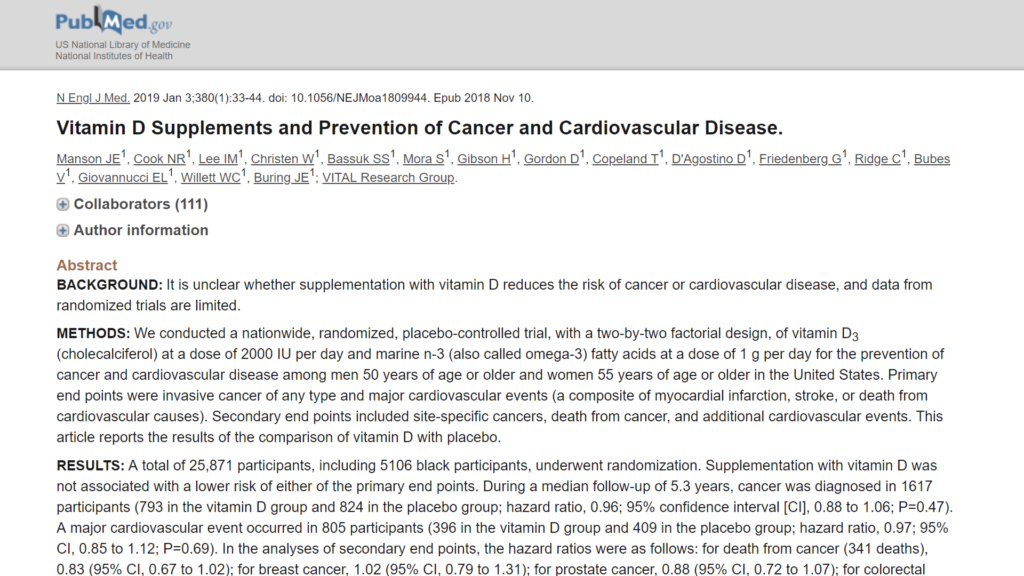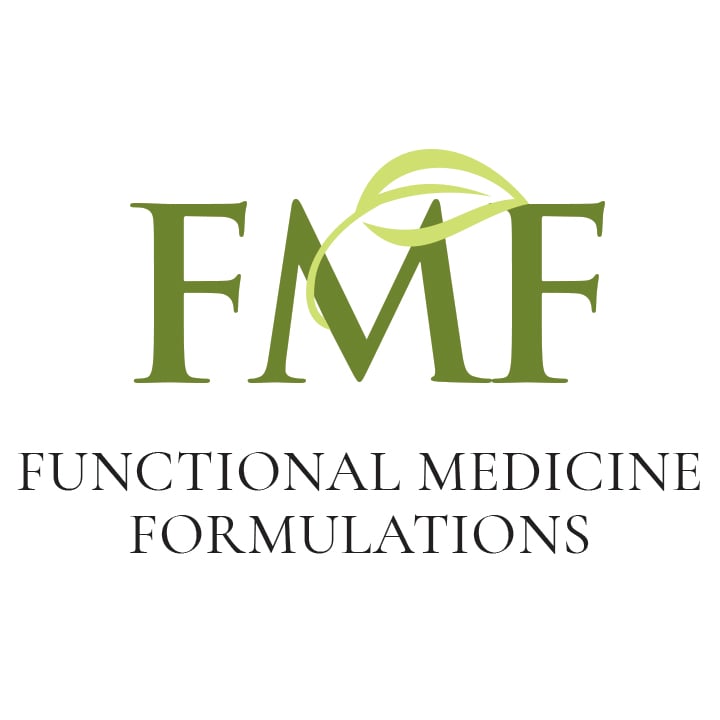Do Vitamin D Supplements Reduce Cancer or Heart Disease?
A 25,000 person study shows that vitamin D supplementation does not reduce the incidence of cancer or cardiovascular disease versus a placebo. However, sun exposure has been tightly correlated with a reduction in certain cancers as well as cardiovascular disease. Aim to get outside for 15 minutes with no sunblock, at least three times a week, to reap these benefits. See Healthy Gut, Healthy You for more specific dosage guidelines and considerations for your specific vitamin D level.
Dr. Michael Ruscio, DC: Hi everyone. This is Dr. Ruscio. Let’s discuss if supplementing with vitamin D can decrease the incidence or your chances of cancer or cardiovascular disease. Now, we’ve all probably heard something about the health benefits of vitamin D supplementation. And there is evidence to support that supplementing with vitamin D can improve your health. However, it does appear that the health benefits of vitamin D supplementation have been over-exaggerated. This study helps reinforce that conclusion, which is essentially that vitamin D supplementation may not lead to all the benefits you’ve been told.
[Continue reading below]
The health benefits of vitamin D supplementation have been over exaggerated
Study: Vitamin D Supplements and Prevention of Cancer and Cardiovascular Disease
- A total of 25,871 participants, including 5106 black participants, underwent randomization
- Conclusion:
- Supplementation with vitamin D did not result in a lower incidence of invasive cancer or cardiovascular events than placebo
What about vitamin D from sun exposure?
- Sun exposure has been linked to a reduction in most cancers and in cardiovascular disease
- Great starting point for a healthy dose of sun exposure is getting outside in the sun for 15 minutes a few days per week. Direct sun exposure with no protection, no sunblock, etc. is best
- Listen to this previous episode Sun Exposure Reduces Cancer Risk
- Listen to Guidelines for Sun Exposure and Vitamin D Levels with World Authority Dr. Michael Holick
Other Related Posts:
- The Health Benefits of Sun Exposure
- Chronically Low Vitamin D – The Infection Connection
Download this Episode (right click link and ‘Save As’)
This is a large study entitled, “Vitamin D Supplements and Prevention of Cancer and Cardiovascular Disease.” They tracked over 25,000 patients for a number of years, looking at the incidence of cancers and cardiovascular disease over time in those supplementing with vitamin D compared to placebos. This is a placebo-controlled trial. People were randomly assigned to either take vitamin D supplementation and tracked, or a placebo and tracked. So this is very high-quality data. It’s not your typical association or observational data which we see in much of the vitamin D research.
Vitamin D Supplements Don’t Reduce Cancer, CVD
Their conclusion, to quote: “Supplementation with vitamin D did not result in the lower incidence of invasive cancer or cardiovascular events than placebo.” In summary, vitamin D supplementation does not appear to decrease cancers or cardiovascular disease. However, there is one important clarification I should make here: sun exposure has been somewhat tightly correlated with reducing most types of cancers and cardiovascular disease.
Sponsored Resources
Hi everyone, let’s talk about probiotics and bone broth, both of which have helped make this podcast possible. Now you may know that Kettle & Fire is one of my favorite bone broths and this is for good reason. Now, why is bone broth good? Well, it can help to heal your gut, soothe inflammation and repair your joints, nourish your skin, hair, and nails and have this kind of anti-aging effect. This is in large part due to the nutrient profile being very nutrient dense of bone broth. Especially Kettle & Fire who are using non-GMO, organic and free-range ingredients.
Now if you go to kettleandfire.com/drruscio, they’re going to offer our audience 15% off and free shipping on orders of six cartons or more. So definitely check them out at kettleandfire.com/drruscio.
Also to Functional Medicine Formulations, which is the line of probiotics that I’ve developed. I am super excited to be able to offer you the same probiotics that I’ve been working on and developing for years and years. I use these in the clinic and they are now available to you. In this line you will find my favorite three probiotics, in each of the three probiotic categories, which work synergistically together to help fight dysbiosis like SIBO candida yeast, H. Pylori, help to eradicate parasites, help to reduce leaky gut and repair the gut barrier, can improve gas, bloating, diarrhea, constipation and abdominal pain and may even improve mood, skin, sleep and thyroid function. You can learn more about these three probiotics at drruscio.com/probiotics.
So sun exposure may vector the benefit that vitamin D has been purported to garner. If you’re trying to optimize your health, if you’re trying to reduce or mitigate the risk of cardiovascular and/or cancer incidence, then maintaining a healthy level of sun exposure is an excellent practice toward that end. I’ll link here to a couple of interviews we’ve conducted with vitamin D researchers that also provide guidelines. [1,2]
But essentially, getting into the sun for at least 15 minutes a few days a week without protection is a great place to start. So two to three days per week, at least 15 minutes, middle of the day, direct sun exposure, no sunblock, exposing as much of your body as you can. The darker your skin is, the more exposure you may need. So that 10 to 15 minutes may need to be more, anywhere from perhaps 15 to 25 minutes.
Sun Exposure Does Protect From These
However, sun exposure is certainly something that has been shown to have a number of health benefits. If you’re looking for more specifics, in my book, Healthy Gut, Healthy You, I lay out very specific dosing guidelines, depending on if you’re vitamin D sufficient or vitamin D insufficient. Meaning, if you’ve had a blood test and your levels are low compared to normal, how much vitamin D do you need to maintain the normal, or to bring the low up into the normal range.
In summary, vitamin D supplementation, at least in what I feel to be the best study to date, does not prevent cancer and cardiovascular disease. However, there is an impressive amount of literature showing that regular, safe sun exposure—not burning, but getting regular sun exposure—does protect you against multiple forms of cancers and cardiovascular disease.
This is Dr. Ruscio, and I hope this information helps you get healthy and get back to your life. Thanks.
What do you think? I would like to hear your thoughts or experience with this.
- Get help using this information to become healthier.
- Get your personalized plan for optimizing your gut health with my new book.
- Healthcare providers looking to sharpen their clinical skills, check out the Future of Functional Medicine Review Clinical Newsletter.






Discussion
I care about answering your questions and sharing my knowledge with you. Leave a comment or connect with me on social media asking any health question you may have and I just might incorporate it into our next listener questions podcast episode just for you!